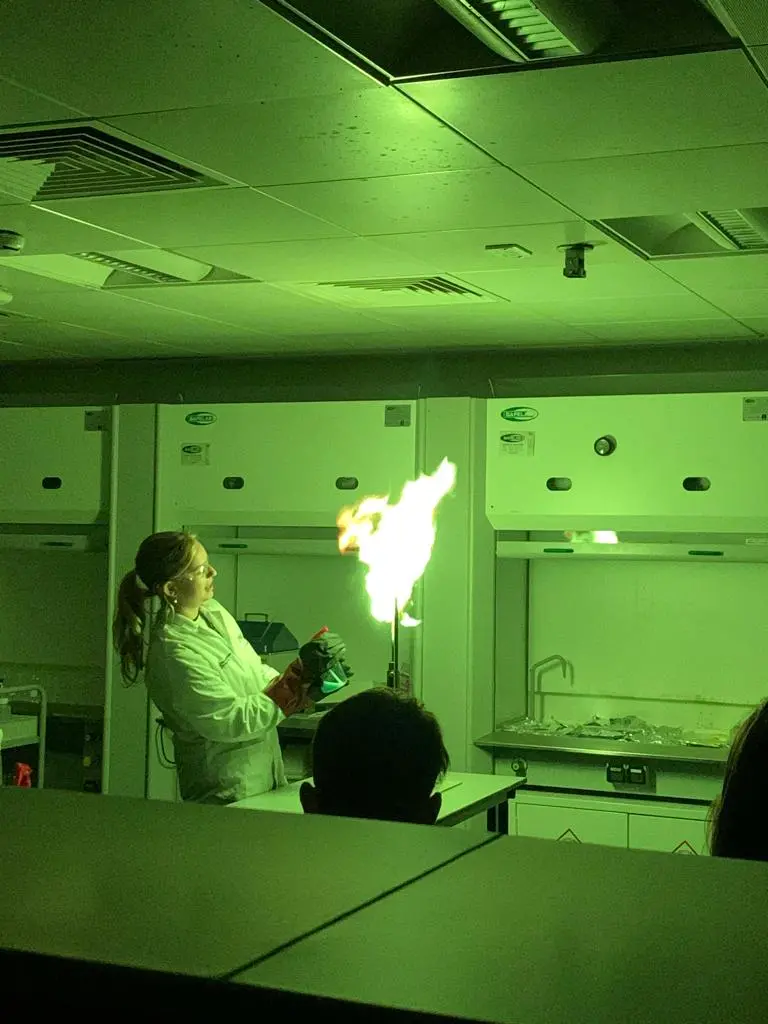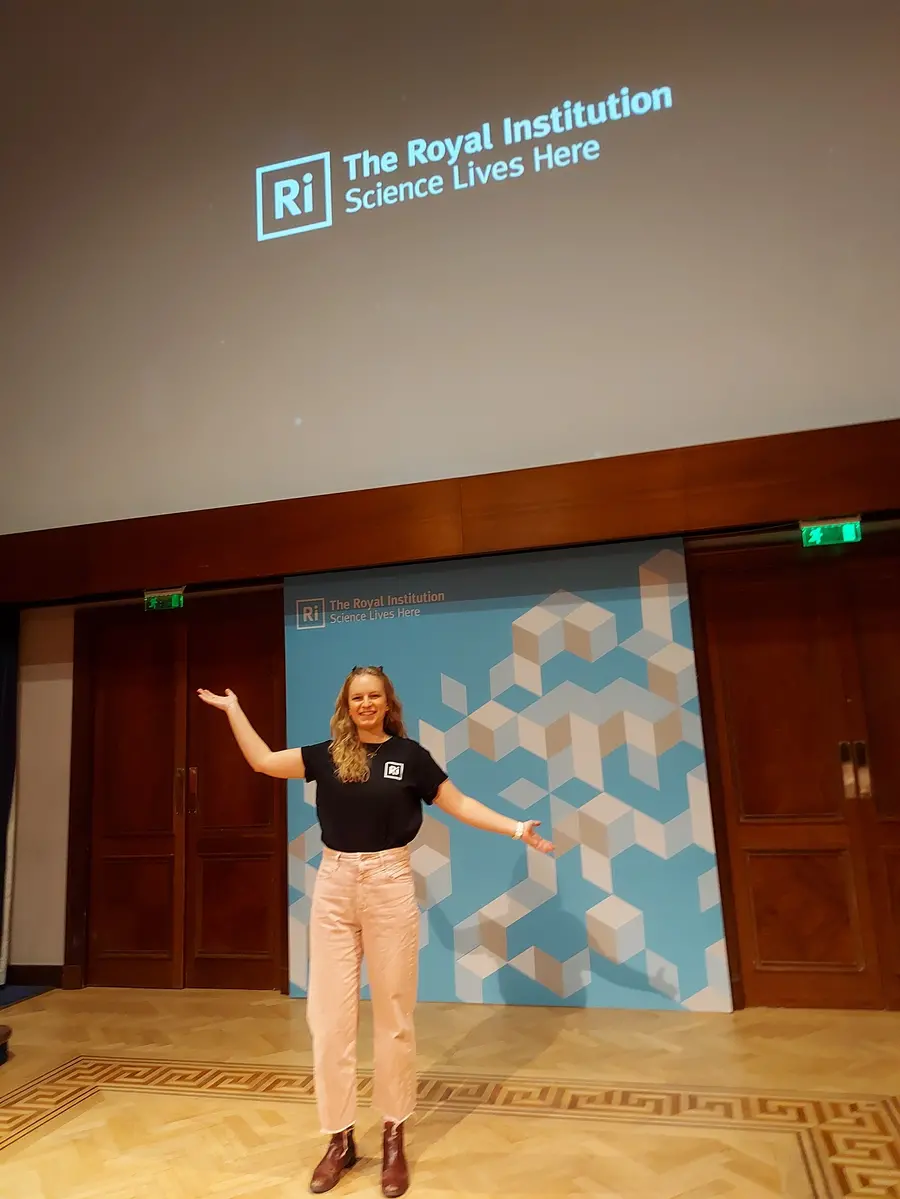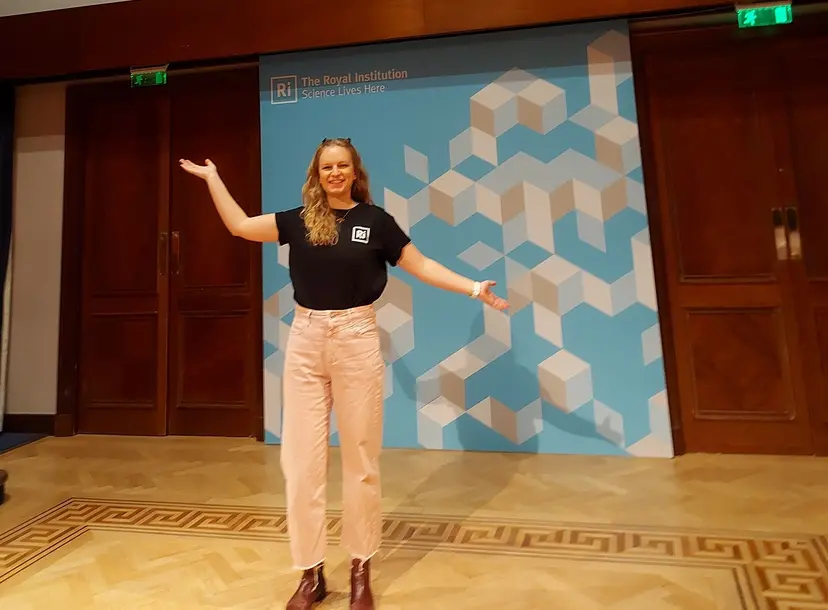My name is Jess, and I'm a Science Engagement intern at the Royal Institution. I'm working in the L'Oreal Young Scientist Centre (YSC) for three months. My role is to help deliver hands on workshops in Physics, Biology and Chemistry. Students here get a taste of what it's like to be a scientist for the day, which could inspire their future career.
So, what does a day in the life of an intern at the Royal Institution look like?
Working in the lab
My day starts at 9am, bright and early. I arrive in the lab and help with preparation for the workshop of the day. This can include making agarose gels for the electrophoresis experiments or preparing enzymes and DNA samples. Since starting at the Royal Institution, I've had to refresh some of my chemistry skills. For example, a lot of our workshops use micropipettes, which I hadn't used since school!
Onto the experiment
The students generally arrive mid-morning. They put on their lab coats, protective gloves, and then it's straight to work. An engaging story wraps each experiment. The forensics workshop uses gel electrophoresis to determine who committed a crime. The colour chemistry workshop explores the science behind colours, and how dyes work. The cosmetic chemistry workshop discusses acids and alkalis through the creation of bath bombs. Students also take part in a micropipetting competition, which tests their precision skills. During my internship, I've gained confidence in presenting sections in most workshops. I can now even explain topics and techniques I was unfamiliar with at the start, which is a huge achievement.
If the age group allows, I will also present a short talk on my research and what I do as a PhD student. This is a great opportunity for me to showcase different careers pathways in science. The students often ask me why I decided to become a scientist. Even if I still feel like I'm only starting my career, I'm excited to be able to share my journey so far with them.
The workshops generally finish in the middle of the afternoon. The lab then gets reset for the next day's workshop.
Jess showing the different colours flames turn based on the elements

Creating new content
I spend the last two hours of the day helping to develop a new workshop on the topic of sustainability. Eco-friendly chemistry is a growing research field, so where to start? I read up on current research topics, such as biofuels and bioplastic. I then try to translate these into exciting lab experiments and demonstrations. This could be creating art from plastic debris or making plastic out of potato starch. In my last month here, we'll be giving these experiments a try. Messy times ahead!
All about the science communication
This internship has given me the chance to try new ways of science communication. I have written a blog about my internship and my research. I spoke on a podcast about my PhD. I also had the amazing opportunity to present in the Theatre at the Ri. This is where the CHRISTMAS LECTURES have been running since 1825. I talked to 120 year 5 girls about my career and my research. It was definitely one of the highlights of my time at the Royal Institution.
Jess presenting to 120 girls in the Theatre

Why do an internship in the first place?
Internships are a great way to try new things and gain skills outside of what you would learn at university. At the Royal Institution, I've tried different ways to communicate science. I've also grown in confidence, and that will help me throughout my career.
In addition, doing an internship halfway through my PhD has allowed me to take a step back from my research. I've been doing something completely different from my day-to-day job. This has helped reset some of my ideas, and I will be bringing back new energy to the second half of my project.
Finally, I've met some wonderful people while working here. From a professional perspective, my science communication network has grown. More importantly, I have made new friendships, which will last far beyond my internship.
